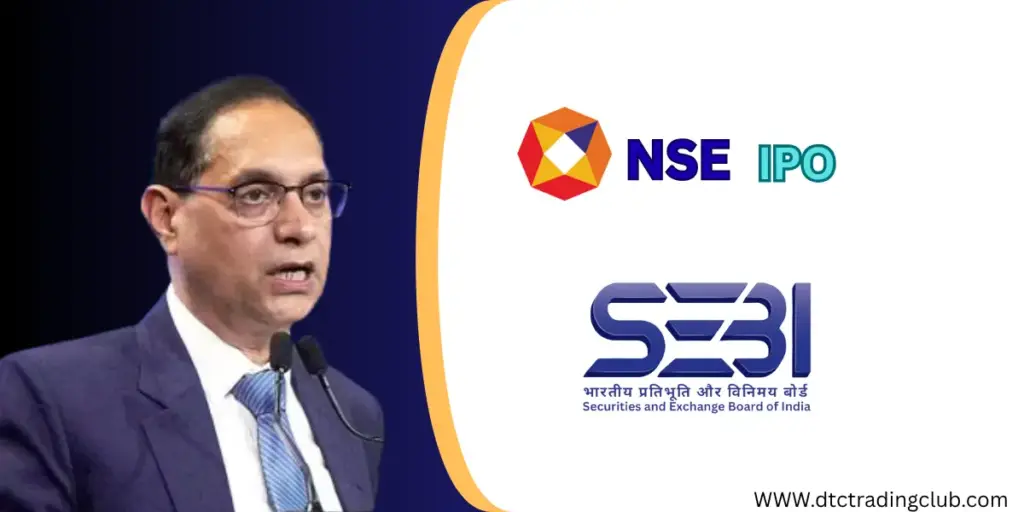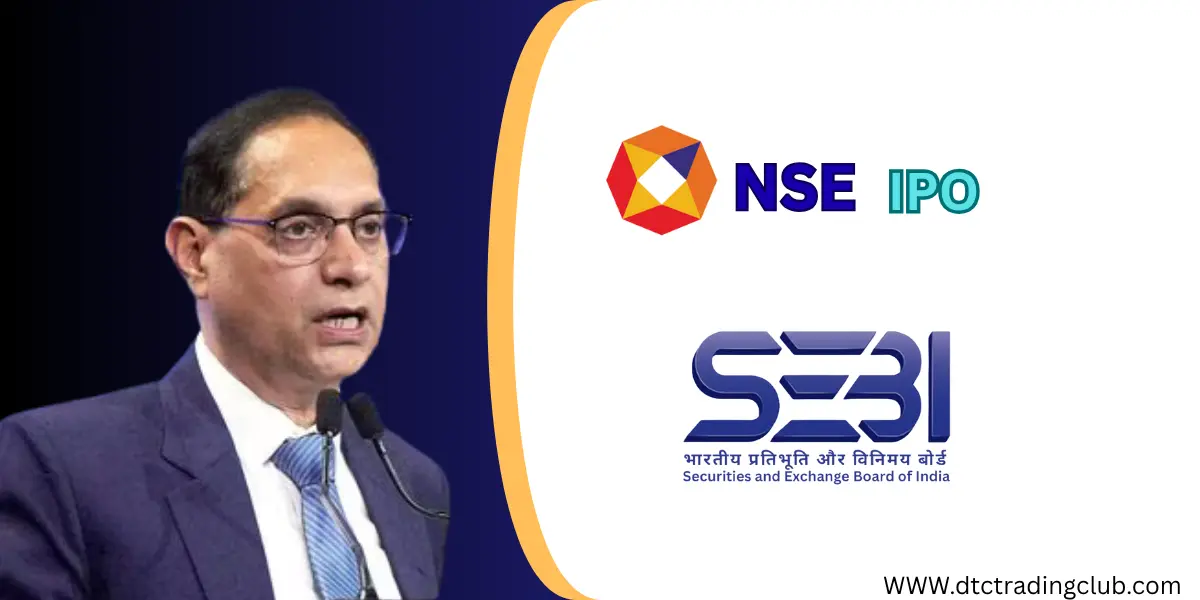Introduction:
The financial world in India is buzzing with anticipation around the upcoming National Stock Exchange IPO. As one of the country’s most vital financial institutions, the National Stock Exchange (NSE) is finally making its debut on the public market. So, what makes this such a significant event for the market? And more importantly, why should investors—new or seasoned—pay attention?
This blog explores not only the top five reasons to invest in the NSE IPO, but also provides a broader look at the India stock market, recent IPO listings, and what the latest IPO in India signals for future investors.

Table of Contents
1. What is the National Stock Exchange (NSE)?
The National Stock Exchange of India, founded in 1992, is one of the largest and most technologically advanced stock exchanges in the world. Based in Mumbai, NSE introduced electronic trading to India, forever changing the way financial assets are bought and sold in the country.
NSE operates various platforms including equities, derivatives, fixed income, and currency markets. It’s especially recognized for its benchmark index, the Nifty 50, which tracks 50 of the most prominent and actively traded companies in India.
NSE has remained a privately held company for decades, and its IPO marks a major milestone in the evolution of the India stock exchange landscape.
Top 5 Reasons to Invest in the National Stock Exchange IPO

A. Market Leadership and Brand Trust
NSE stands at the forefront of India’s stock exchange landscape, leading the way in trading volume and overall market capitalization. Its brand is synonymous with transparency, speed, and technological innovation.
B. Strong Financial Performance
With consistent revenue growth, high margins, and a profitable business model, NSE is a financial powerhouse. Its steady financial performance makes it an attractive option for long-term investors.
C. Technological Edge
NSE is a pioneer in implementing electronic trading and algorithm-based systems. It continuously invests in cybersecurity, infrastructure, and cutting-edge trading technology, making it resilient and scalable.
D. Diversified Revenue Streams
From equities and derivatives to data analytics and co-location services, NSE earns from multiple segments, reducing risk and enhancing stability.
E. Rare and High-Demand Opportunity
Stock exchanges rarely choose to go public, making this IPO a truly unique opportunity for investors. This IPO is a rare chance for retail and institutional investors to own a piece of India’s financial backbone.
How Does the NSE IPO Impact the India Stock Market?
The India stock market thrives on investor confidence, and the NSE IPO is expected to boost it significantly. A successful listing can attract foreign institutional investors (FIIs), increase trading volumes, and further validate India’s position in global finance.
Additionally, this IPO could encourage other private financial institutions to consider public listings, creating a more dynamic and transparent marketplace.
A Quick Look at IPO Listing Today and the Latest IPO in India
Recent IPO listings in India have witnessed mixed performance. While some IPOs such as Zomato, LIC, and Nykaa created waves, others have underperformed. However, investor interest remains high, and each latest IPO in India adds new learning for market participants.
Today’s IPO landscape is rich with companies from fintech, electric vehicles, health tech, and green energy—signifying India’s evolving economic narrative.
The NSE IPO adds a layer of maturity to the scene, showing that even institutional giants see value in public participation.
How to Invest in the NSE IPO
- Demat Account: Make sure you have an active demat account.
- UPI/Banking Integration: Use your UPI or ASBA-enabled bank account to apply.
- IPO Prospectus: Read the company’s draft red herring prospectus (DRHP) carefully.
- Broker Platforms: Use reliable trading platforms like Zerodha, Groww, AngelOne, or traditional brokers.
Once listed, the NSE IPO will be available on the India stock exchange platforms for regular trading.
Risks and Considerations Before You Invest
- Regulatory Scrutiny: Being a key financial institution, NSE is under constant regulatory monitoring.
- Market Volatility: Economic and political factors can affect IPO performance.
- Valuation Concerns: As with any high-profile IPO, valuations may be aggressive. Consider your risk appetite.
What Experts Say About the (NSE IPO)
Financial analysts across platforms have expressed optimism about NSE’s IPO. Many cite it as a “once-in-a-decade” opportunity. According to market expert Rakesh Mehta, “The NSE IPO could be a bellwether event that redefines how global investors view Indian capital markets.”
What Lies Ahead for India’s Stock Market After the NSE IPO

The NSE going public could signal a shift toward greater transparency and innovation. With retail investor participation at an all-time high, and fintech apps simplifying trading, the timing couldn’t be better.
As NSE strengthens its position, it could lead initiatives in blockchain-based trading, AI-driven analytics, and global cross-listings.
Conclusion: Is This the Right Time to Invest?
The National Stock Exchange IPO isn’t just another public offering—it’s a landmark in India’s financial journey. With a proven track record, strong tech backbone, and solid financials, NSE stands out as a compelling investment.
For those looking to align with the future of the India stock exchange, this IPO could be the gateway. Just remember to do your research, understand the market, and invest wisely.
FAQS:
1. When is the NSE IPO expected to be launched?
ANSWER: The exact date hasn’t been announced, but it’s anticipated within the current financial year, subject to regulatory approvals.
2. What is the face value of NSE IPO shares?
ANSWER: The face value will be disclosed in the Draft Red Herring Prospectus (DRHP).
3. How can I apply for the NSE IPO?
ANSWER: You can apply via your trading platform or demat account using UPI or ASBA methods.
4. Will NSE shares be listed on both NSE and BSE?
ANSWER: Yes, post-approval, the shares will likely be listed on both exchanges.
5. How does this IPO compare with other recent IPOs in India?
ANSWER: Unlike startups, NSE is a mature, profitable institution with stable revenues—offering a different investment profile.
6. Is the NSE IPO suitable for long-term investment?
ANSWER: Yes, due to NSE’s strong fundamentals and leadership, it could be a strong long-term asset.
7. What sectors benefit the most from a successful NSE IPO?
ANSWER: Financial services, fintech, and broking platforms are likely to benefit due to increased participation and liquidity.
